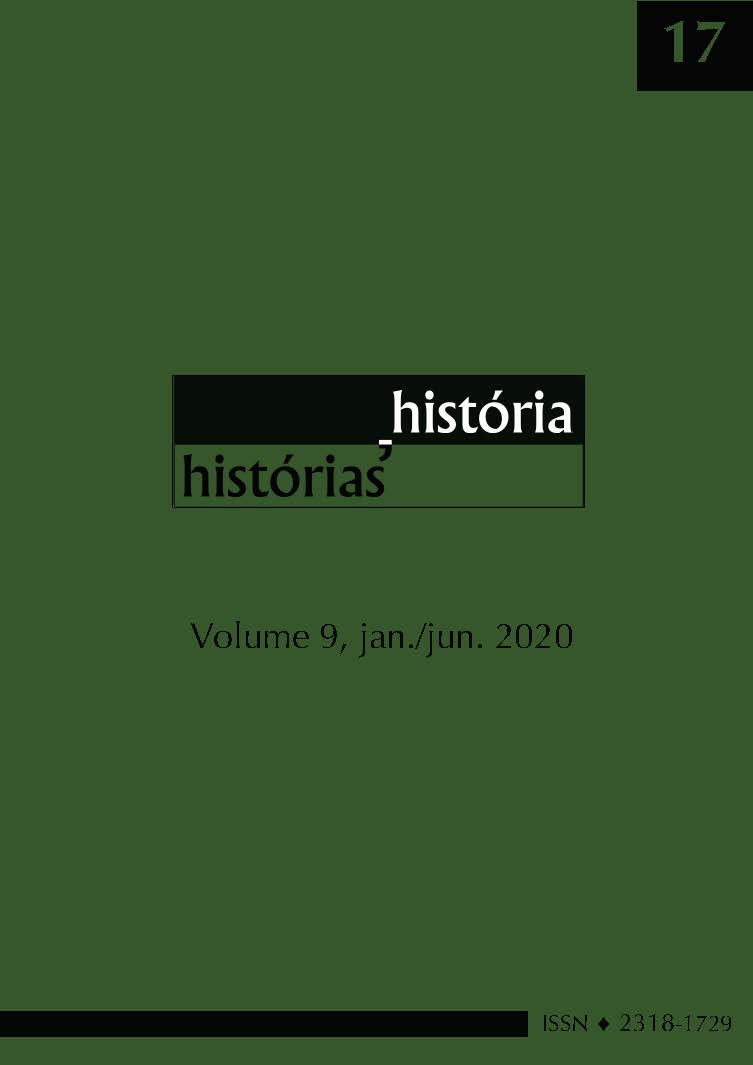As relações de gênero na BNCC de História:
da ausência à resistência
DOI:
https://doi.org/10.26512/rhh.v9i17.33344Keywords:
Teaching History, BNCC, GenderAbstract
The motivation for writing this article lies in the challenge of thinking about the introduction of gender relations in History Teaching, a current discussion that intends to contribute to the initial formation of teachers with arguments to take the BNCC of History as a space of possibility and resistance. For this purpose, a cutout was made in the document, which caused the choice to analyze the introductory part of the History component looking for the gaps in the text to work with gender relations from a historical perspective. The theoretical perspective is anchored in the theorists and theorists of gender and History Teaching, with the defense that the work with these two areas of knowledge says of a current problem of constitution of the subjects in their historicities, being part of the diversity of schools.
Downloads
References
BRASIL. Base Nacional Comum Curricular: História. Brasília, 2017, p. 397-403. Disponível em: http://basenacionalcomum.mec.gov.br/a-base Acesso em 13 ago. 2020.
BUTLER, Judith. Problemas de gênero: feminismo e subversão da identidade. Rio de Janeiro: Civilização Brasileira, 2003.
FONSECA, Thais Nívia de Lima e. História & Ensino de História. Belo Horizonte: Autêntica, 2003.
FOUCAULT, Michel. História da Sexualidade I: a vontade de saber. Rio de Janeiro: Edições Graal, 1988.
FOUCAULT, Michel. A arqueologia do saber. Rio de Janeiro: Forense Universitária, 2005.
FOUCAULT, Michel. Ética, Sexualidade, Política. Rio de Janeiro: Forense Universitária, 2006.
FOUCAULT, Michel. O belo perigo. Belo Horizonte: Autêntica, 2016.
JENKINS, Keith. A História repensada. São Paulo: Contexto, 2011.
LOURO, Guacira Lopes. Gênero, sexualidade e educação: uma perspectiva pós-estruturalista. Petrópolis: Vozes, 1997.
MACEDO, Elizabeth. “Base Nacional Comum para currículos: direitos de aprendizagem e desenvolvimento para quem?” Revista Educ. Soc., Campinas, v. 36, nº. 133, p. 891-908, out.-dez., 2015
PRINCÍPIOS de Yogyakarta. Princípios sobre a aplicação da legislação internacional de direitos humanos em relação à orientação sexual e identidade de gênero. 2007. Disponível em: http://www.dhnet.org.br/direitos/sos/gays/principios_de_yogyakarta.pdf
Acesso em: 09 ago. 2020.
REIS, Toni; EGGERT, Edla. “Ideologia de gênero: uma falácia construída sobre os Planos de Educação brasileiros”. Revista Educ. Soc., Campinas, v. 38, nº. 138, p.9-26, jan.-mar., 2017.
SCOTT, Joan. Gênero: uma categoria útil para análise histórica. In: HOLLANDA, Heloisa Buarque de. Pensamento feminista: conceitos fundamentais. Rio de Janeiro: Bazar do Tempo, 2019, p. 49-82.
VILELA, Eugénia. Resistência e acontecimento. As palavras sem centro. In: KOHAN, Walter Omar. Foucault 80 anos. Belo Horizonte: Autêntica, 2006, p. 107-128.
ZAMBONI, Ernesta. “Panorama das pesquisas no ensino de História”. Saeculum- Revista de História, João Pessoa, n. 6/ 7, jan.-dez. 2000/ 2001
Downloads
Published
How to Cite
Issue
Section
License
Copyright (c) 2021 História, histórias

This work is licensed under a Creative Commons Attribution-NonCommercial-NoDerivatives 4.0 International License.
Authors who submit papers with this journal agree to the following terms:
a) Authors retain copyright and grant the journal right of first publication with the work simultaneously licensed under a Creative Commons Attribution License that allows others to share the work with an acknowledgement of the work's authorship and initial publication in this journal.
b) Authors are able to enter into separate, additional contractual arrangements for the non-exclusive distribution of the journal's published version of the work (e.g., post it to an institutional repository or publish it in a book), with an acknowledgement of its initial publication in this journal.
c) Authors are permitted and encouraged to post their work online (e.g., in institutional repositories or on their website) prior to and during the submission process, as it can lead to productive exchanges, as well as earlier and greater citation of published work.




